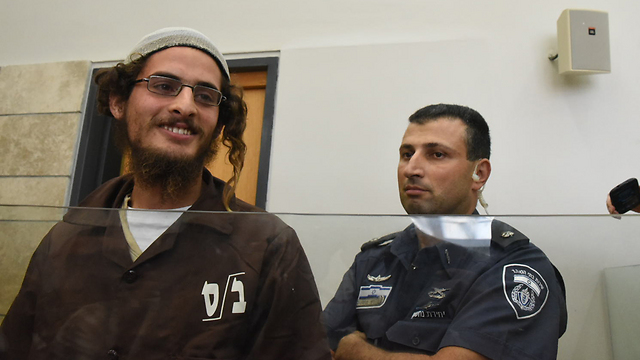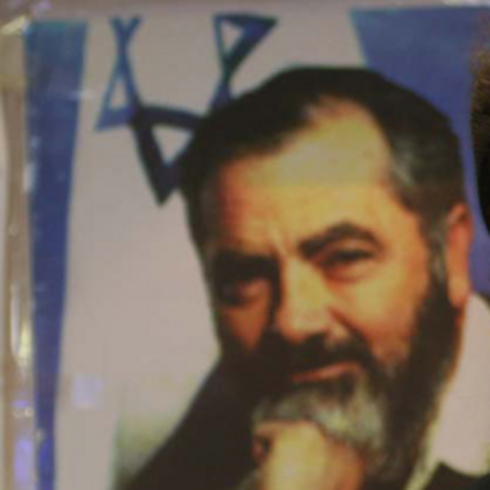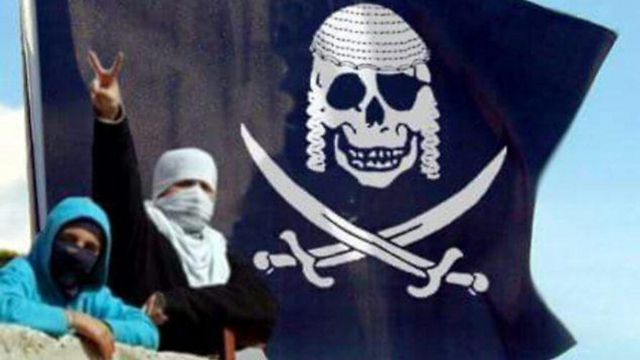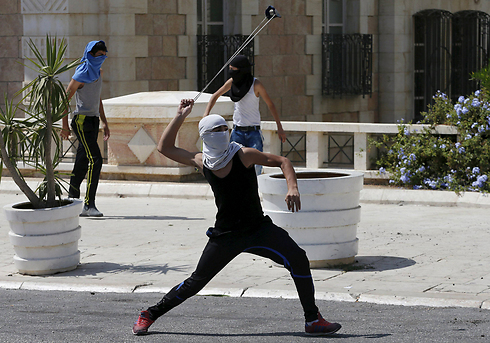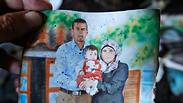

Jewish terrorism: The missing link
Analysis: After years of failures, the Shin Bet has switched gears in its fight against Jewish terrorism. From technology to operations, the entire organization was enlisted to find the killers of the Dawabsheh family members, and the recent arrests indicate that at least some progress has been made.
The case of the Dawabsheh family arson-murder in Duma didn't generate new directives from the Prime Minister's Office to the Shin Bet with regard to tackling Jewish terrorism. The PMO just sent the signal that allowed them to treat Jews suspected of hate crimes differently from before. No longer will they be seen as wayward youth or vandals – from now on, they'd be labeled as terrorists.
The formula is simple – a change in definition is also a significant change in the scope of tools that investigators can use. And when there are tools, there are successes. The proof of this is that despite the early skepticism, the Shin Bet already has Jewish suspects in custody who are thought to have played a part in the Dawabsheh family murders, as well as other terror activities. This is the lesson that this government needs to learn from the Duma affair regarding how they deal with the entire extremist Jewish sector.
When dealing with Palestinian terrorism, the Shin Bet doesn't need special approval to put unusual protocols into practice. When Jewish terrorism is investigated, things are different. The courts treat most Jewish terror acts as regular crimes. Burning churches or trees, for example, is seen as property crime, not a nationalistic hate crime. Throwing stones at a Palestinian car, if it's investigated at all, will be considered on the same scale as a violent protest. It goes without saying that the investigation of Israeli suspects is completely different from that of Palestinians suspected of the same hate crimes, which in their case will be considered terrorist acts.
Up until now, Jewish suspects would stay silent during interrogations, and wait for their lawyers to quickly come and extricate them before the head of the Shin Bet can decide to introduce the more severe interrogation protocols. But the rules of the game have changed. Now a struggle is being waged in which the suspects are attempting, through their associates, to spread awareness of their arrest in order to affect interrogation conditions, gather public support, and halt the possibility of the Shin Bet extracting a confession from them. As part of this struggle, efforts were made to circumvent the gag order on the subject, through the spreading of suspects' names on social media, as well as petitioning the Supreme Court.
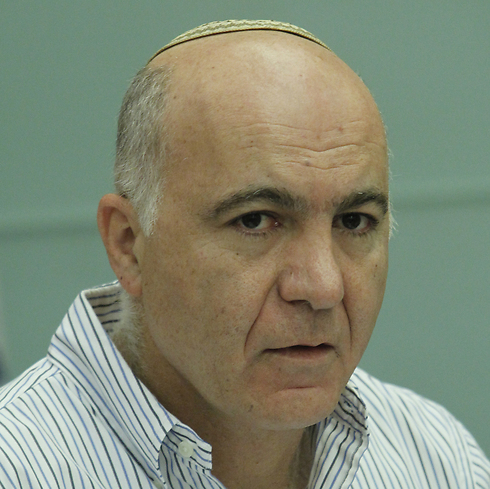
From the laconic statements that came out after this week's discussion, it could be gathered that significant progress has been made in the Shin Bet's investigation of a severe security incident.
The Shin Bet is asking to keep the gag order in place for a few more days, probably because the investigation is still ongoing. So we should be careful about declaring the case solved, as it might end in disappointment.
Realizing a fanatic mission
A few weeks after the murders in Duma, Defense Minister Moshe Ya'alon said specifically that the murderers were Jewish and hinted heavily at Meir Ettinger and his gang, who have been responsible for a number of severe terror attacks against Arabs since December 2013. Some of those cases, among them the burning of the Church of the Multiplication near Tiberias, have already been solved. Others, like the murders in Duma, are in the advanced stages of investigation.The last known occurrence of their activity was the burning of a Bedouin tent in the West Bank on August 13, 2015, two weeks after the murder in Duma. They took care to leave graffiti behind that clarified it was revenge for the Shin Bet's treatment of them. Three of Ettinger's people were caught after the arson, but were released due to a lack of evidence. Ettinger himself is serving a six-month administrative detention period.
In the recent terrorism wave, Ettinger's group was completely suppressed. At the start of August, the government decided to implement a number of steps which, up to this point, had been reserved for use against Palestinian terrorism. The decision was put into practice the same week, against Ettinger's group. Three administrative arrests, 20 geographic restriction orders, house arrests and night curfews. It was enough to get them off the Palestinian territories terror map, at least for now.
A former head of the Shin Bet used to say, in internal discussions, that there isn't anyone who can't be lead to betray his partners. "It's just a question of how much effort you're willing to put in," he added. The state hasn't invested enough in stopping the certain growth of Jewish terrorism, which has grown and bloomed on fertile nationalistic ground.
What began with the Lifta gang went on with the Sikrikim, the Bat Ayin Underground, and the Hebronite Kahanism. These are the anchors of the swamp from which today's religious and political fanaticism has grown. After that came the hilltop youth and Ettinger's buddies.
If these groups performed terrorist acts in the past with the intention of harming Arabs and driving them out of the land of Israel, they've long since moved onto the next stage. The people of the rebellious group are, as far as they're concerned, in an advanced stage of the plan to dismantle the state of Israel.
They see the Zionist state as illegitimate. They want to destroy it from within, and then raise up a monarchy. It's a violent group of lawless fundamentalists, who don't listen to any authority figures – not their parents, not any organization, not rabbis. The Shin Bet calls them Givonim (slang for "hilltoppers" in Hebrew), although they prefer the nickname Biladis (the rudimentary people).
Gangs which identify with this violent nationalistic-religious ideology also operate inside the Green Line, calling themselves Al Yahud (The Jews, in Arabic), as a counter to the Palestinian chant of Itbah al-Yahud (slaughter the Jews, in Arabic). They too don't acknowledge the state's institutions and call for a rebellion against Israeli law. And the rabbis who will join these fundamentalists and enter into the leadership vacuum in their ranks have been found. They include Rabbi Stavsky, who is calling for the formation of a new Sanhedrin.
Ettinger's group is surrounded by much wider ideological groups, some of whom hide behind allegedly legitimate operations. The Lehava organization, for instance, fights against assimilation. Yishai Schlissel, who murdered Shira Banki at the Jerusalem gay pride parade, fights against homosexuality. The town of Neve Daniel was home to a group which claimed that leftists and LGBTs were ruining the Jewish vision of returning to the homeland and being keepers of the land. And then there's the fundamentalist group which operates a modesty police of their own making in Rehovot. And on and on.
These are gangs of crazy people who are capable of murdering in order to turn their fundamentalist mission into a reality. And the state? It doesn't really want to deal with them. Organizations of this kind operate publicly, and some don't hide their ambitions to reach the Knesset. The government's years-long deficiency and hesitation in dealing with these extremist groups, is what has enabled the increasing legitimacy that Kahanistic ideas enjoy in wider and wider circles of Israeli society.
That legitimacy encourages youths, both individuals and groups, to create their own violent and terroristic agendas, like the murderers of teenager Muhammad Abu Khdeir in July 2014, or the same group of youths that were sent out of the ultra-Orthodox yeshivas and set the Jerusalem bilingual school on fire in July 2015. Just this week they were given a mere few years' prison sentence.
The Shin Bet and the police locate these groups inside the Green Line area through their geographic dispersal. Ettinger's people have cells in Netanya and Jerusalem. Some of these people have reached the courts in the past, but were given laughable sentences. There are violent groups of this type in secular towns like Lod, Ramla and Acre, where there are yeshivas mostly founded by newly-observant Jews.
Surviving in hostile territory
After the latest attacks perpetrated by Jewish terrorists, even right-wingers in the political ranks couldn't stay silent anymore. Only then could the Shin Bet get the green light to start treating that terrorism as needed, years after it should have.
The Shin Bet director decided to treat the Duma murders as his top priority. Past experience tells us that the person who leads the operations is his deputy, who establishes a Special Investigations Team (SIT) headed by a high-ranking official. That official doesn't necessarily have to come from within the Jewish department, which operates within the Shin Bet's larger non-Arab section.
During normal times, each of the Shin Bet sections has its way of investigating and collecting intelligence. In more complex operations they aid one another. When an SIT is established, all of the Shin Bet's capabilities in all of its departments are directed towards it. From budget allocations to advanced tech, it becomes the top priority.
Such an SIT was established, for example, when Gilad Shalit was kidnapped. There was great frustration over that operation, since despite the total commitment – this was a national cause after all – the Shin Bet and IDF failed. Shalit was sitting two kilometers from the border, and no one knew where he was. Tens of millions were poured into that project, without results.
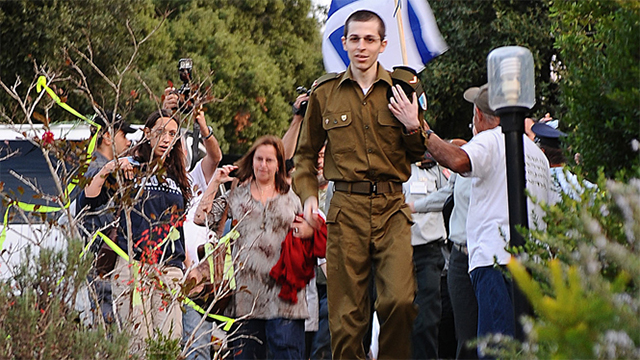
A similar SIT also was also established during Operation Brother's Keeper in June 2014, after three yeshiva students were kidnapped in Gush Etzion. The Shin Bet operated within a group that it has seen success with in the past – the Palestinians. And even so, the three teenagers' bodies were only found 18 days after their murder, with the two murderers located three months later. By these standards, a four-month stretch from the time of the murder in Duma to the possible arrest of the murderers is probably professionally decent. And by the way, there have been cases where a failed SIT was replaced.
An indictment of the Duma killers isn't just a matter of prestige for the Shin Bet, which finds itself attacked for the state's continued ineffectiveness in dealing with Jewish terrorism. This murder has become a symbol, fanning the flames of the current conflict with the Palestinians. The way they see it, Israel's treatment of this case strengthens the narrative that says Israel is abandoning the Palestinians to be attacked and allowing settlers to commit crimes with impunity. Perhaps, they might say, Israel even encourages the settlers by its inaction. The arrest and punishment of the murderers could be an important component in the attempts to lower the temperature of the past few weeks' terrorism wave.
Terrorist entities, both Palestinian and Jewish, can only survive in a hospitable environment. There are the occasional denunciations by the normative camps of the hilltop youth, as their violent activities clash with temporary institutional interests sometimes, but as a general rule the West Bank settler populace treats this phenomena with passivity. A significant portion of the hilltop youth are second- or third-generation settlers, which has created an alternative culture to the Israeli one.
They see the government – which to them represents Tel Aviv and the decadent left – as persecuting them. The institutions in the territories don't deal with them, perhaps because they don't want to and perhaps because they can't. In this kind of atmosphere, the Shin Bet has trouble gathering information by using informants or even agents.
The Shin Bet's advantage in the area of foiling attacks focuses on its ability to infiltrate the populations it deals with, such as the Arab population, recruiting people and placing agents on the inside so that they can be informed of new subversive movements. That indirect contact with the population is one of the reasons that the Shin Bet isn't enthused about gestures in which territories are handed over to the Palestinians. Gathering intelligence from afar is more complicated, less reliable, and less available. The Shin Bet operates well in places where there's Israeli rule, or in places with an IDF presence.
The Shin Bet can't necessarily build the infrastructure it needs inside the Jewish West Bank population because, among other things, it is forbidden by law to apply what's called "basic coverage" of the sector. Basic coverage means a constant, invasive presence in broad areas of the target you're after. For instance, constant surveillance and tracking.
In such situations, any break from the routine can give an indication of subversive activity against the interests of the State of Israel. The alternative to basic coverage of this type in the Jewish sector is the cooperation, voluntary or otherwise, of the area's residents with the Shin Bet. And that doesn’t happen, at least not to the extent that would facilitate the tracking of potential threats.
If the case of the murders in Duma has indeed been cracked, it is, first and foremost, because of the change in the government's attitude towards Jewish terrorism in the West Bank. The Shin Bet has the ability to topple the subversive Jewish organizations in the West Bank, but to do that it needs the ability to handle them like it does parallel Palestinian organizations. Maybe the solving of this murder will be the watershed moment in the political establishment's two-faced treatment of Jewish terrorism.
And maybe the extreme right-wing lobby will once again pressure ministers and Knesset members in order to prevent the Shin Bet from interrupting Jewish nationalistic and violent groups. So far, the struggle has been going on behind the scenes, mostly between lawyers attempting to extricate their clients from having to admit their guilt. When the gag order is removed, the struggle will become public.














